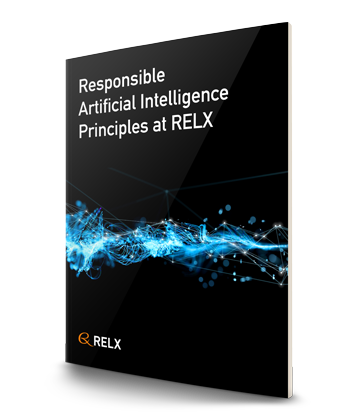The Legal Industry in the Age of AI
Learn how generative AI is transforming legal research and workflows and be the first to preview legal AI tools
JOIN AI INSIDEREmbracing the Technological Shift
Listen to webinars and podcasts from leading experts and discover the how to transform your research & legal workflows
LexisNexis AI Powered Legal Solutions
Discover the impact of LexisNexis® AI-powered solutions on your research and workflow today
Lexis+ AI™
Transform your legal research and workflows
Introducing Lexis+ AI, the fast and accurate legal generative AI solution that can transform your legal work with increased efficiency and accuracy.
Get conversational search, drafting, summarisation, document analysis, and linked hallucination-free legal citations in minutes linking to LexisNexis authoritative legal content.
Lexis+®
Experience a new era of AI-powered legal knowledge
Legal information, data-driven insights and practical guidance work seamlessly together to deliver the knowledge you need, when you need it.
LEARN MORE
Lexis® Argument Analyser
Deep case law research powered by artificial intelligence and trusted LexisNexis content. Lexis Argument Analyser delivers intelligent insights so you can drive better client outcomes.
- Gain confidence in completeness by reviewing on-point case recommendations
- Drive your efficiency to a new level with case recommendations, citation analysis, legal issue mapping and downloadable authorities in seconds
LEARN MORE
News & Insights
Harnessing the power of AI: Practical applications and future trends
QUICK READS THAT WILL KEEP YOU UPDATED ON EVERYTHING LEGAL AI
WHITEPAPERS THAT WILL HELP YOU MAKE BETTER DECISIONS
Keep up to date with the latest developments in Legal AI tools
Become a Lexis® AI Insider and help shape the future of legal tech with generative AI.
Become a Lexis AI Insider
Join Lexis AI Insider and be the first to preview the fastest legal generative AI solution Lexis+ AI, and other legal AI tools.
Lexis AI Insiders get the opportunity to help improve the way we use artificial intelligence in the legal industry and be part of something truly transformative. See the full program details here.

RELX Responsible AI Principles
At LexisNexis and across RELX, we’re committed to making a positive impact on the world through our solutions. As we develop leading AI tools and analytics, we are removing unfair bias, we are accountable and can explain how our solutions work through human oversight, we respect privacy, and we champion robust data governance.
Frequently Asked Questions
Generative AI is a type of AI that creates new content in response to user prompts. The AI model’s outputs - which can be text, images, audio or any other media – are generated based on patterns and data the model has learnt from a very large amount of pre-existing content. Foundation models – including Large Language Models (LLMs) – fall within the category of generative AI. Foundation models are very large, versatile AI models that can be fine-tuned to carry out a variety of tasks.
LLMs can be fine-tuned to perform language-based tasks that are relevant to the legal industry. To do this, a vast database of legal data in the form of case law, legislation, forms and precedents and commentary is essential.
Lexis+ AI is a leading generative AI solution developed by LexisNexis. It leverages LexisNexis’ vast, authoritative legal database and leading generative AI models to deliver four important capabilities:
- Conversational search
- Summarisation of case law
- Document drafting, including clauses and correspondence
- Ability to analyse, summarise and extract key information from uploaded legal documents
Key benefits of AI in a legal context include gaining efficiency in tasks that are repetitive by nature, quickly developing a strong foundation on a particular subject or legal topic, synthesising large volumes of data, and mitigating risk by ensuring that you haven’t missed something important.
AI-enabled solutions and assistants help lawyers free up their time, allowing more time for high-value work such as creating strategy, applying critical thinking to the law, and building strong client relationships. While these solutions can drive significant efficiency and productivity gains, it is crucial to use them as an enabler to accelerate growth and not as the final draft of your legal advice or litigation strategy. Lawyers must ensure the insights provided by AI are accurately interpreted and presented.
To use AI effectively, lawyers will require the following skills and competencies:
Critical thinking in prompt engineering and output evaluation – The ability to design effective prompts and evaluate and critique AI-generated outputs thoughtfully.
Creativity – Proposing innovative ideas that go beyond what AI can generate.
Focus on the human element – Doubling down on skills AI lacks, such as creativity, critical thinking, innovation, leadership, and social/emotional intelligence.
Basic technical literacy – Knowing how AI works, the strengths and weaknesses of AI, and the use cases of different AI solutions.
When looking to partner with AI service providers, organisations will need to take the following into consideration:
- Domain expertise and experience: AI technologies encompass a wide range of applications with their own unique set of challenges and limitations. AI service providers specialising in your industry will have a more in-depth understanding of the complexities that apply to your use case and will know the solutions that are most suited to your needs. When partnering with a legal AI provider, ensure that the model references authoritative content, can understand legal terminology and different practice areas, and has been trained with human subject matter experts in the loop.
- Technology infrastructure and ability to scale: The technology infrastructure and capabilities of the AI service provider will have direct impact on the efficiency and performance of your AI solutions. As business demands on AI become more complex, the ability to scale also becomes more important. As the volumes of data and computational requirements grow exponentially, the infrastructure must expand accordingly. The ability to scale as needed is crucial to maintain the performance of your model and ensure that the solutions can adapt to future needs.
- Data policy and compliance with regulations: The dramatic increase in the use of AI has introduced concerns regarding data security and privacy. Your AI service provider should have established policies and robust measures and practices to ensure that data is handled responsibly and in compliance with legal requirements in your industry and location. These policies should also be clearly communicated so that users are aware of how their data is used, stored, and shared. Incident handling measures must be put in place to address any security incidents or breaches. It is also important to be aware of whether your inputs are private and whether or not they will be used to train the underlying model.
- Training and Support: Your AI service provider must also be able to provide necessary training and support to help your organisation gain the necessary skills to effectively use AI. Having proper training will allow your organisation to understand what the solutions are capable of and how to fully capitalise on these capabilities to get a good return on your investment.
- Responsible AI Innovation – AI service providers must practice developing AI solutions in a way that benefits individuals and society while trying to minimise the negative consequences possible. They should follow responsible AI principles that lay emphasis on transparency in the model performance, bias free implementation and minimising the risk of hallucination.
When deploying AI, numerous ethical considerations come to the forefront, encompassing issues such as bias, privacy and security, and societal and environmental impact. For more information refer https://www.lexisnexis.com.au/__data/assets/pdf_file/0010/506179/relx-responsible-ai-principles.pdf.
The legal industry is under pressure to provide client-centric high-value services while minimising costs. With the need to improve the bottom line increasing year on year, it has become imperative to leverage legal technology as a process enabler across law firms.
AI can make the practice of law more efficient by automating routine tasks such as discovery, document review and legal research. Additionally, AI can support decision-making by surfacing data-driven insights and recommendations in a fraction of the time it would take via traditional methods of research.
Using AI can save time and costs, while also freeing up legal practitioners to focus on higher-level and more strategic tasks where they can add real value to the client. This allows firms to remain competitive while providing superior service to their clients.
 LexisNexis
LexisNexis






















